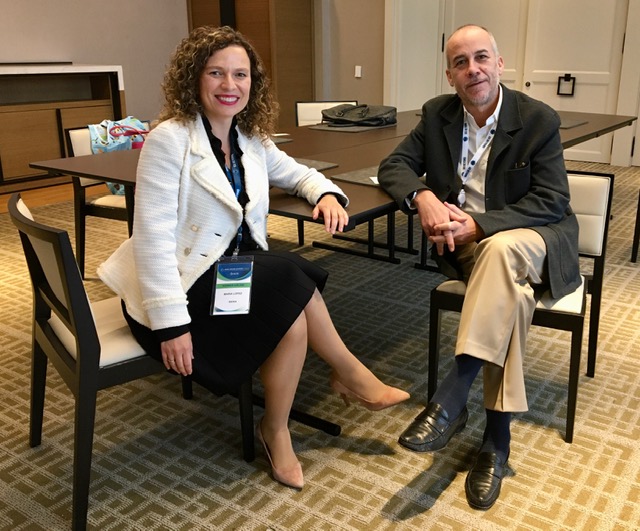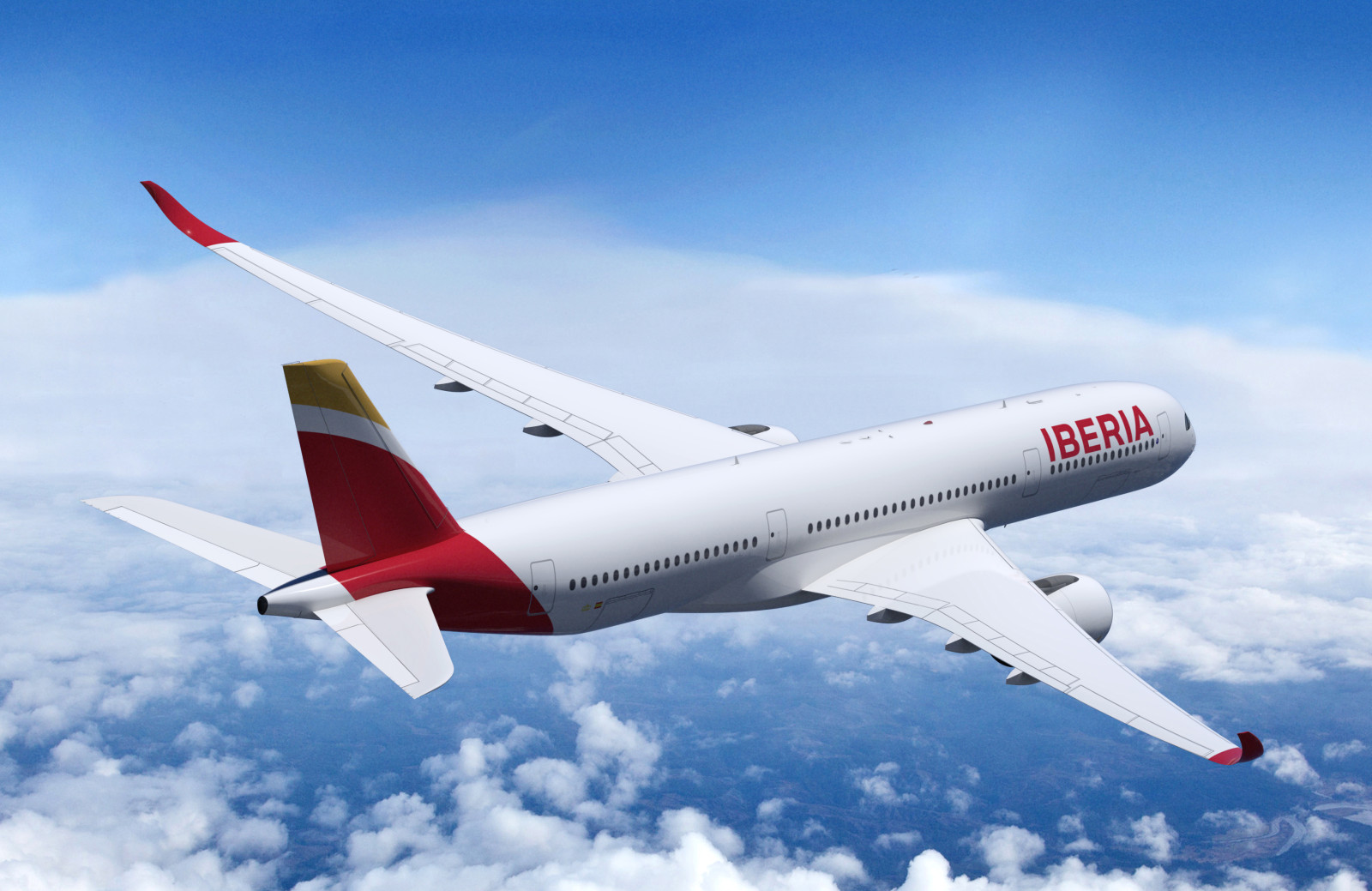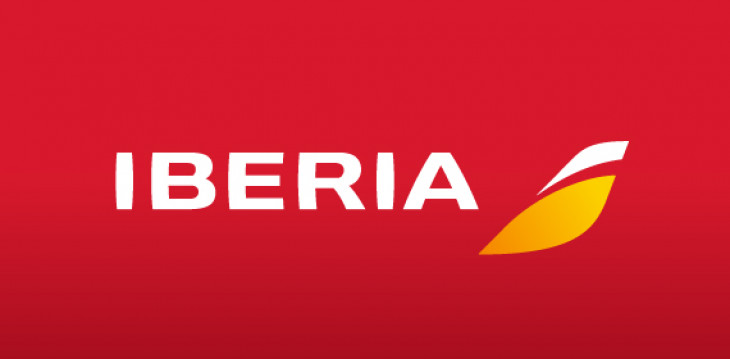By Jeff Peet, Managing Editor.
1. Iberia has a social and cultural commitment to Latin America that, throughout its 75-year history, has been increasing. That reality must go hand in hand with a commercial consideration, of course. At this point in the pandemic, how is that balance being managed between that socio-cultural commitment and the company’s commercial strategy?
Having been aggressive in that balance, it has made us precisely even improve our results. It has all been like a very virtuous circle. When the pandemic began, in the first months, almost all the airlines in the world had to reduce operations to zero, maintaining only repatriation flights, medical supplies and vaccine transport but then, in June 2020, we resumed fundamental flights, connectivity and regularity o our operations to and from Latin America. We were barely two months flying repatriation flights. We always said that from this crisis, you could not get out from being on a sofa, but rather that it was essential to go out and fly and, when in doubt, you had to fly more. So, we were always very close to our markets, talking with our teams in each of them and with local authorities, to understand the reality and put as many flights as possible. This strategy was very good because it allowed us, on the one hand, to maintain the relationship with our customers because I reiterate that we practically never stopped flying and were pioneers in the speed of capacity recovery. We were also able to give our people more jobs. This has allowed us to be leaders among all carriers in terms of capacity recovery between Latin America and Europe, and being at the forefront because we maintained regularity in flights, which has made our clients choose us more having increased our market share during this pandemic and we are proportionally more present than ever, in Latin America. Our balance is positive because it has helped us to balance both the results that are very important because we had to build cash little by little and also the relationship with our clients. In Latin America, we have been able to keep activity levels as high as possible, to reduce our team’s unemployment, which is very important for Iberia.
2. You clearly have a strategy and I imagine that all this is part of a plan. In that sense, in what part of that journey are you in terms of deadlines that were set?
In the end, nobody has a crystal ball and this has been very, very dynamic. Every week, we have a meeting with our commercial department, our network, our alliance partners, and customer teams and we review it on a weekly basis. As we see that a market has more demand or restrictions are lifted, we add more capacity. The idea is to update our decision-making and to put more capacity as we see how the demand performs. That is why there are already places where we have the same capacity that we did in 2019 and one of them, for example, is Colombia, where since the beginning of this month we have a significant presence.
3. What is the perception that Iberia has of progress towards the normalization of the industry in relation to what the governments of Latin America have done? Has there been due priority on their part?
I believe that what we are missing not only from the governments of Latin America but also from Europe in general, is a greater homogenization of the requirements because in the end, what has happened is that there are countries that have been very open and that they have had or have very few entry requirements and that greatly facilitates the recovery of connectivity and the demand for travel. I am referring to Colombia, Mexico and the Dominican Republic, where the fact that protocols are taken care of but are very open with the entry of tourists, allows capacity to recover. However, there are other countries that have been more restrictive. We at Iberia and I believe that in this there is a coincidence with many airlines, would like to see greater homogeneity in what is requested. All countries must realize that many months have passed since the pandemic began and that, sometimes, there is no direct relationship between the restrictions imposed and the control of the pandemic, which is essential to regain connectivity.
4. What aspect of the industry do you think will be the most difficult to recover?
I will answer that with the glass half empty but also with the glass half full. When you see the type of clients who are traveling, those who have family in another country or who have to move to visit relatives have been the first segment of our demand that has recovered. It is what is called the “Visiting Friends & Family” option. Tourism is also recovering very quickly, especially in those countries where a plan has been designed to recover that industry. The traffic that is a little behind, that is recovering further back, is corporate. That is the slowest of all. Now and looking at the glass half full, we can see that those corporate clients who travel for the first time after the pandemic and can have a face-to-face meeting with someone, immediately travel again because it is true that all these digital tools have served to maintain an inertia in what was our normal work, but ultimately it does not help to create new relationships, or to innovate, or to create new products. All this I say with the hope that I believe that the corporate segment is also going to recover because people are going to want to go back to doing business in a face-to-face way.
5. Corporate passengers are a great source of revenue for airlines, because they fly business class and the truth is that those technological tools that you mentioned have worked. Bearing that in mind, what plan have you devised at Iberia to recapture that demand in light of that slower recovery? I mean, for example, in prices and taking into account that there are companies that do not have the cash flow they did before the pandemic, to move from one place to another as they did until 2019.
We are very aware of this and we are giving many facilities creating products that are adapted to the new times, with special flexibilities derived from the situation we have now, with special prices and always being very close to what the client needs. For example, we have seen that there are sectors that have recovered before others, because they have needed to travel more urgently and therefore, we try to adapt the product to the specific needs of each sector. We are also working hard to raise awareness about the advantages of face-to-face work and face-to-face meetings, as a business opportunity. We are coordinating with many stakeholders in the sector, so that they can tell themselves what are the advantages that they have found of flying again. In that, we see how demand is changing and the figures from one month to another are changing rapidly. In other words, the industry is advancing and that is why I was telling you that I see it with a glass half full, although we are still far from pre-pandemic levels, logically.
6. What is the role that you have played in balancing the restrictions and new sanitary conditions that are imposed on the industry or, from another point of view, in what way other than accepting what is imposed on you, have you been able to convince people who do not know much about aviation and who have taken attributions and spaces in the same airports, that the industry is safe in terms of not contributing to the spread of this disease?
I think we have made a lot of progress. From the beginning of all this because we made ourselves available to all health and safety authorities, especially in our context, in Spain and in Europe, to try to create working groups hand in hand to let us evolve according to the situation of the. I think everything has come a long way in the last 20 months because we could not exactly keep things where they were at the beginning. Iberia, for example, has changed a lot of things. Our service to customers, at the beginning of the pandemic and because we knew little about this virus, sought to minimize contact so that people would feel safe. Now, as vaccination levels have increased and since we know that the environment inside an airplane is healthy, we have restored our dedication to the passenger and we are offering a value proposition on board because the client also has to feel that traveling is about enjoying and we are recovering that.
7. Cargo has played a very important role in this crisis. How has this aspect of the business benefited Iberia?
Cargo has been fundamental and has helped us a lot to recover as a network because, above all, we have been very agile and very flexible. When we began to see that all these restrictions were in place and that passenger demand was not responding, we focused on cargo. The cargo has been fundamental in recovering our network because we have been able to maintain many flights since the cargo justified them and, once the flight was justified, we launched it for sale with customers. That has helped regain confidence, which is something we have worked on a lot. When we saw that we were doing well with five frequencies, we said why don’t we try seven.
8. Iberia has shown great independence in matters such as its “Code Share” agreements. I say this because despite LATAM’s exit from the One World alliance, that partnership has been maintained. What evaluation do you make of this at Iberia and what is the future of this relationship?
For us, LATAM is a key partner and we want to continue to maintain that relationship with them, it terms of our code share and distribution agreements. In addition, we believe that we generate a lot of value for LATAM and so they do for us.
9. How do you see the moment that the industry is experiencing in Latin America and the Caribbean and how long do you think it will take to recover the market share from the Latin American side, thinking about your role as a bridge?
It is not an easy question but in the end I see that this is closely related to how the countries of Latin America are advancing in their vaccination plans, which is happening very quickly. It also happens that this affects the lifting of restrictions because there is inequality there. That is, there may be the same progress in terms of vaccination, but even so there are places more open than others. For us, the recovery of the industry is closely linked to openness. The more open the countries are, the easier we will be able to recover all of the capacity.
10. In recent weeks you have revealed a strong commitment to the region. In that sense, in Colombia for example, we already see a large network of destinations and a recovery plan for Iberia’s offer. What similar plans do you have for other Latin American countries?
We have already committed to flying twice a day to Bogota starting next February and are currently flying our pre-pandemic daily schedule with the Airbus A-350, which is our most modern aircraft, which produces less CO2 and is the most efficient of our fleet. That is a great commitment to that country. In the same way, we have growth plans in most of the Latin American countries. We have recovered practically our entire network. We do have some destinations where we are awaiting its opening, for example in Venezuela, where we have already been authorized special flights. In short, as countries open up, we are committed to recovering our capacity and, in many places, we are at 2019 levels. Moreover, in some countries, for example in the Dominican Republic, we are already above what we flew before the pandemic.
Our commitment to Latin America is global and we want not only to recover the capacity that we had, but also to be able to grow beyond 2019, as the markets recover. Latin America is at the heart of Iberia.



